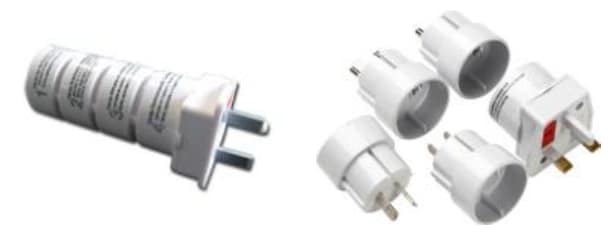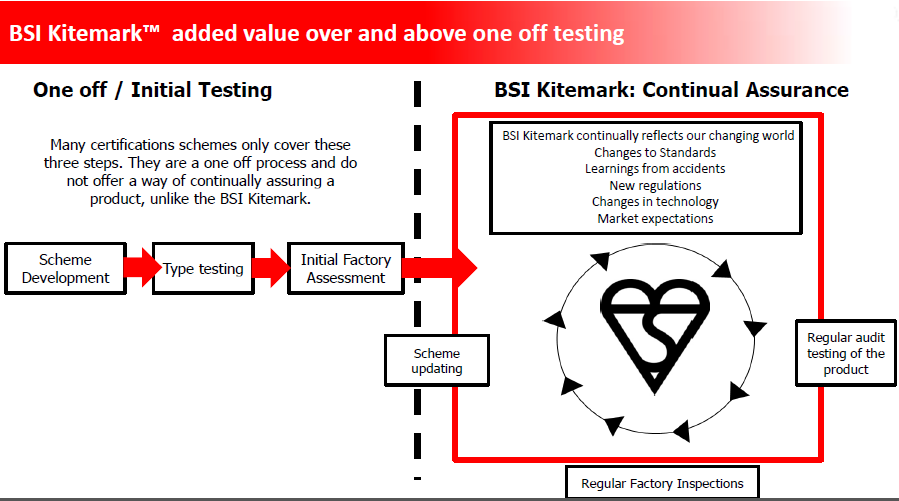Raising the safety of Travel Adaptors with British Standard BS8546
Travel adaptors - many of us have at least one, hidden in a draw at home. For most of us this innocuous item gets dragged out each year for our annual holiday. Some of us buy a new one at the airport because we couldn’t find the one we bought last year. We use them with our laptops, mobile phones, hair straighteners etc. and don’t give them a second thought, and that is a shame because we should.
We expect them to work everywhere, with any item we plug into them. Most of us won’t think about whether they’re capable of handling the power required by hair straighteners or kettles. That’s bad since many are actually not suitable for such high current appliances – even the “good” ones from known brands. As for some of the cheaper travel adaptors, quite often they won’t be able to handle your phone charger safely!
Throughout the European Union the majority of travel adaptors have been included within the requirements of the Low Voltage Directive for some time – all but the most simple travel adaptors (simple being a travel adaptor which has plug pins of one country and a socket outlet for a different country) should be CE marked at the very minimum.


Multiple (complex) travel Simple travel adaptor example
adaptor examples
But in the UK until this year there has never been a standard specifically for travel adaptors – in fact there has been very little standardisation throughout the European Union for travel adaptors. There are British Standards that have been used; BS 5733 often formed the basis for assessing travel adaptors for example. But none were written specifically for safety testing of travel adaptors, so sometimes the testing may not have been as thorough as it should have been.
Couple this with the simplistic nature of CE marking and the often cheap nature of so many travel adaptors and we have a recipe for problems including:
- Travel adaptors with unclear markings about maximum current ratings
- Poor quality manufacturing
- Cheap materials
- Poor compatibility with national plug/socket systems
This has now changed in the United Kingdom. On 30th April 2016 BSI published BS 8546 Travel adaptors compatible with UK plug and socket system. BS 8546 was specifically written by the UK’s Electrical Accessories technical committee to cover “the requirements for the construction, rating, marking, dimensions and testing of travel adaptors intended for the temporary connection of electrical equipment”. It is applicable to all travel adaptors which feature either UK BS 1363 plug pins or socket-outlets for the purpose of connection to a non-UK plug and socket system.
In conjunction with the latest edition of the Low Voltage Directive this means that all but the most simple travel adaptors placed onto the market in the United Kingdom after 30th April 2016 should comply with BS 8546.
The publication of BS 8546 means that for a travel adaptor with a UK plug or socket:
- Manufacturers have a clear set of requirements to meet which will ensure a safe product
- Members of the public know that when they buy a product marked BS 8546 it has been shown to meet the clear requirements set down for a travel adaptor featuring UK plugs / sockets
BS 8546 brings increased levels of safety to travel adaptors:
- A travel adaptor compliant with BS 8546 will be clearly marked with its capabilities – rated current, rated voltage, wattage etc.
- ALL BS 8546 travel adaptors will have to be rated 5 Amps as a minimum – a value suitable for the majority of products we carry with us on our holidays
- The ratings will also be linked to the non-UK sockets into which the travel adaptor can be plugged and the number of socket-outlets the adaptor has
- Travel adaptors which will be used with non-UK systems which do not have an Earth circuit will have to be clearly marked “Caution: For use with unearthed appliances only”
As a result of this, BSI has now implemented a Kitemark Certification scheme for travel adaptors. This scheme goes beyond the bare minimum requirements of CE marking which is (simplistically) one off testing of a product.

Our scheme shows the commitment to quality and safety of a manufacture by:
- Regular factory inspections to review the manufacturer’s Quality Management System
- Regular audit testing of products to confirm their continued compliance with BS 8546
- Ensuring the certified products are always assessed to the latest standards
The end result is the knowledge that a travel adaptor with a Kitemark to BS 8546 is a product which is safe and fit for purpose.
Unlike the weather, it won’t let you down on holiday.

Author: Malcolm Smith
Certification Technical Expert, Electrical & Gas

